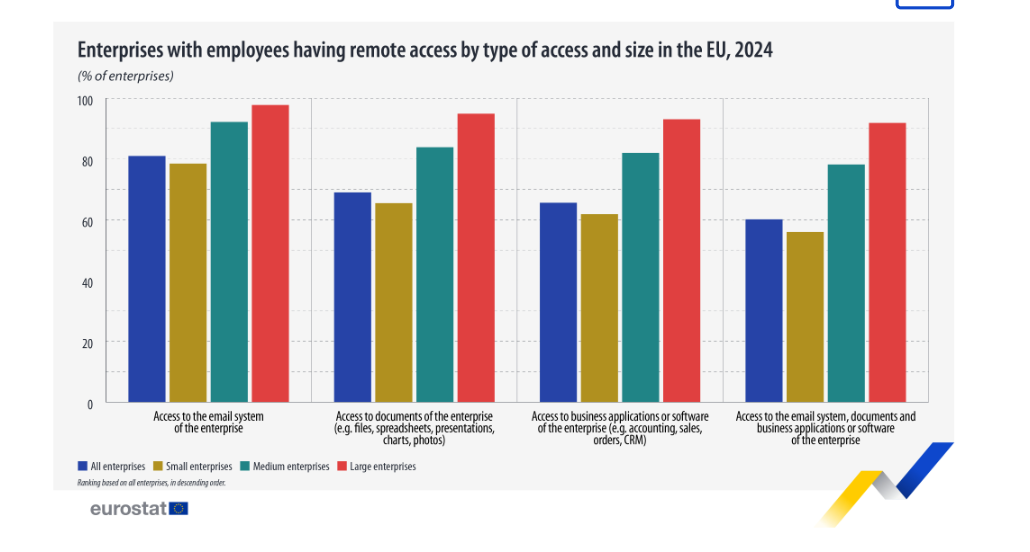Adoption of online meetings varies significantly – Scandinavian countries lead the trend – impresses the difference between business sizes
In 2024, more than half of businesses in the European Union with ten or more employees (52.9%) held remotely on the Internet. This percentage marks an increase of 2.9 percentage points compared to 2022, suggesting that the changes in the method of working, resulting from the Covid -19 pandemic, were not temporary – on the contrary, they are converted into constant characteristics of the new working landscape.
The adoption of online meetings varies significantly by country. Scandinavian countries lead the trend: in Finland, 84.5%of businesses held digital meetings, 79.1%in Sweden, 78.5%in Belgium in Belgium. On the other hand, Bulgaria (32.4%), Hungary (33.5%), Latvia (34.0%) and Romania (34.9%) are in the last positions. This geographical differentiation reflects differences in technological infrastructure, mentality and organizational maturity.
53% of European companies held online meetings in 2024. Big companies are leading the way
In addition to online meetings, the overall possibility of remote access to employees to basic digital tools is a key index of digital maturity. According to the latest data, 60.2% of European companies with 10 or more employees provided all three types of remote access: the company’s email system, documents (files, presentations, tables, photos) and business applications (accounting, sales, orders, CRM systems).
Pioneer the big companies
The difference between business sizes is impressive: almost all large companies (91.9%) offered all three types of remote access, compared to 78.2% of mediums and only 56.0% of small ones.
More specifically, large companies secured remote access for their 97.8%email employees, 94.9%and business applications at 93.1%. Medium -sized enterprises followed with corresponding rates of 92.2%, 83.9%and 82.0%.
Small businesses, although lagging behind, have improved, with 78.5% offering access to email, 65.5% to documents and 61.8% to applications – with the latter category showing an increase of 4.6 percentage points from 2022. It is noteworthy that, by 2022, there has been an increase in all access to all, Corporate documents by 4.6 percentage points.
This trend confirms the gradual adoption of digital tools even by smaller businesses, which usually appear more hesitant in integrating new technologies. These findings are sketched a clear direction: digitization of work deepens and businesses – especially the biggest ones – continue to invest in technologies, which allow flexibility and efficiency. Remote work and online meetings are no longer extraordinary emergency solutions, but established practices in the modern work world.
Source: Skai
I am Janice Wiggins, and I am an author at News Bulletin 247, and I mostly cover economy news. I have a lot of experience in this field, and I know how to get the information that people need. I am a very reliable source, and I always make sure that my readers can trust me.











